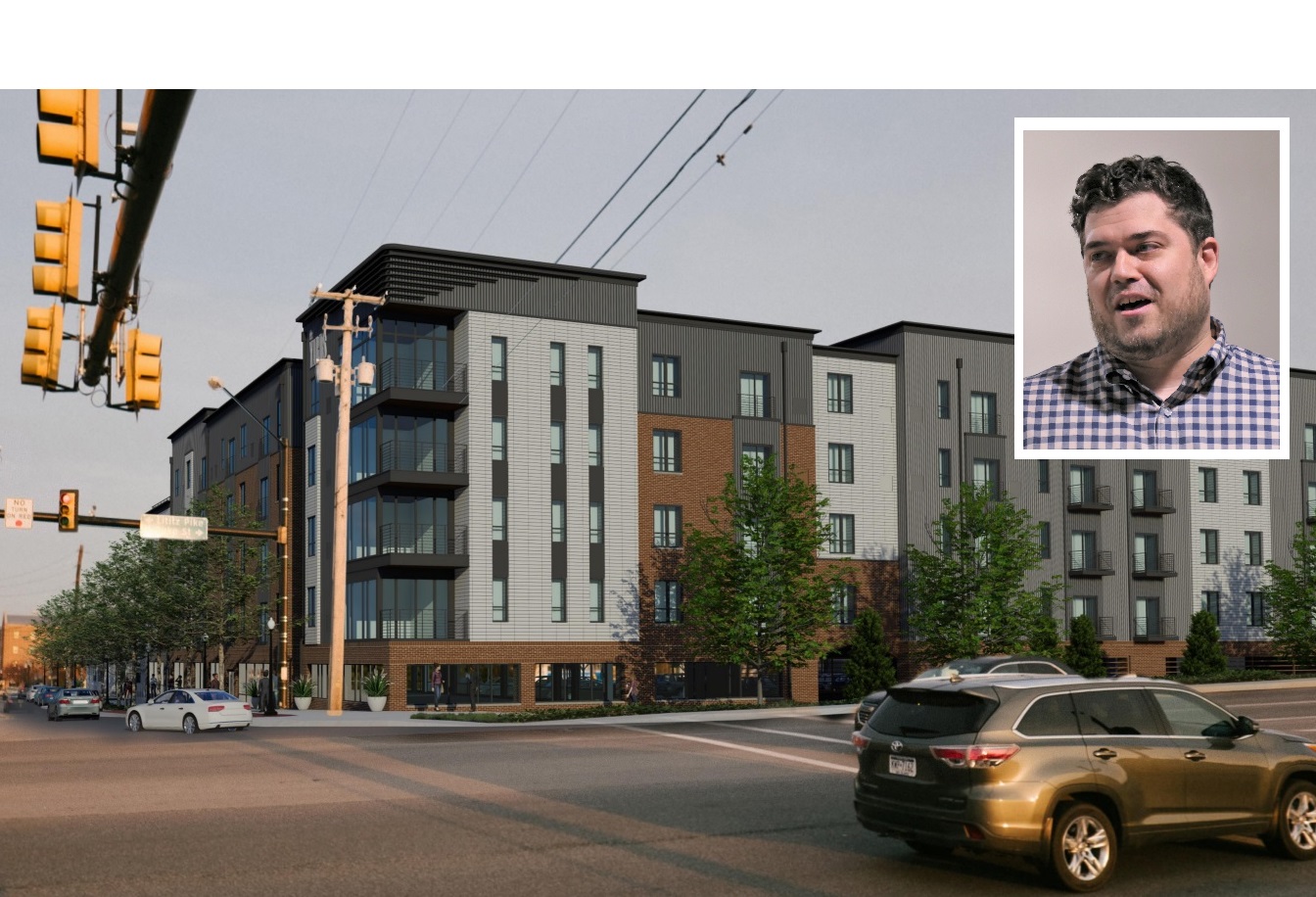A local developer has changed his mind about accepting more than $3 million in American Rescue Plan Act funding for a large housing project, saying it would be more than offset by the increased costs that would come with the money.
Ben Lesher is founder and president of Parcel B Development Co. He is planning The Yards, a $60 million apartment complex at the corner of Lititz Pike and Marshall Avenue. The site historically adjoined the Lancaster Stockyards.
Last year, City Council awarded $2 million of ARPA funding to Parcel B, then known as SDL Devco, to support setting aside 45 of The Yards’ 226 units as affordable housing. That means their rent would be capped and they would be rented to households making no more than a certain percentage of area median income.
The county chipped in another $1.25 million from its ARPA funds. Lesher now says he is relinquishing both allocations.
Accepting ARPA would add $8 million to $9 million to his costs, due to prevailing wage and other bidding and construction mandates attached to it, he said. Part of the issue: The mandates would apply to the whole project, not just the affordable portion.
The added cost vastly exceeds the value of ARPA “and is just not viable,” he said in an email. “… I am back to the drawing board with the affordable units, but committed to keep trying.”
New applicants sought
Councilman Jaime Arroyo briefed his colleagues on Lesher’s decision at Tuesday evening’s City Council meeting. Arroyo chairs the body’s economic development committee.
The $2 million allocation came out of $10 million in ARPA funds that City Council had earmarked for affordable housing. The city is putting out a fresh request for proposals, or RFP, in order to reallocate it to other housing initiatives, Arroyo said.
The RFP is similar to the previous one, he said, although there are some minor edits intended to make the application and evaluation process easier.
Organizations that previously received city ARPA funding are eligible to apply again, but not for the same project.
The city is posting its solicitation on the PennBid portal. The deadline is Dec. 8. Applications will be evaluated by the city’s ARPA committee, with decisions on grants anticipated in January, Arroyo said.
The committee includes Mayor Danene Sorace, Arroyo, Council President Amanda Bakay and city community planning and economic development staff.
County officials did not immediately respond to a request for comment.
About prevailing wage
Advocates for prevailing wage laws say they protect workers and prevent a “race to the bottom” on pay and benefits. Critics say they adds unnecessary cost and paperwork.
According to the U.S. Treasury’s ARPA guidance, projects technically need not comply with federal prevailing wage law, known as the Davis-Bacon Act, if ARPA is the only government funding being used. However, ARPA-funded projects must comply with applicable state laws, including prevailing wage laws.
In Pennsylvania, prevailing wage applies to any project over $25,000 that receives public money, a Department of Labor & Industry spokesman said.
The state requirement is why Lancaster is including prevailing wage in its ARPA project contracts, city Solicitor Barry Handwerger confirmed.
The Treasury guidance on prevailing wage has an important caveat. It says jurisdictions should encourage “strong labor standards” for ARPA projects, including paying prevailing wage or better. Those standards must be documented in detail for larger projects, and certifying Davis-Bacon compliance is one way to do so, it says.
Parcel B’s projects
Lesher’s signature project to date is Stadium Row, the first market-rate apartment project in Lancaster of its size in decades. The 104-unit building just north of Clipper Magazine Stadium cost $18 million to build and opened in 2021.
Besides The Yards, he has announced plans for two other projects in Lancaster: An expansion of Stadium Row and a 130 unit apartment building in the 200 block of North Prince Street.
He was among the dozen panelists at this week’s state House committee hearing on increasing housing supply, held at the Lancaster Chamber, and has been vocal about the many economic and regulatory factors driving up development costs and the rents that have to be charged to cover them.
Parcel B’s timeline for starting on The Yards is being impacted by a pair of lawsuits filed by Brook Farms Development, which owns an adjacent property. The company, owned by developer Robert Redcay, claims The Yards improperly received preferential regulatory treatment from the city government and the Zoning Hearing Board.
Lesher said Parcel B is awaiting a court ruling and hopeful it will prevail.
“We are still moving forward with the project one way or another,” he said.






